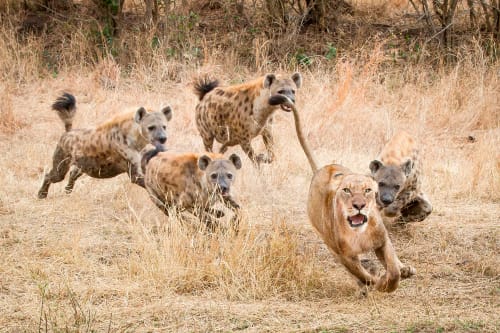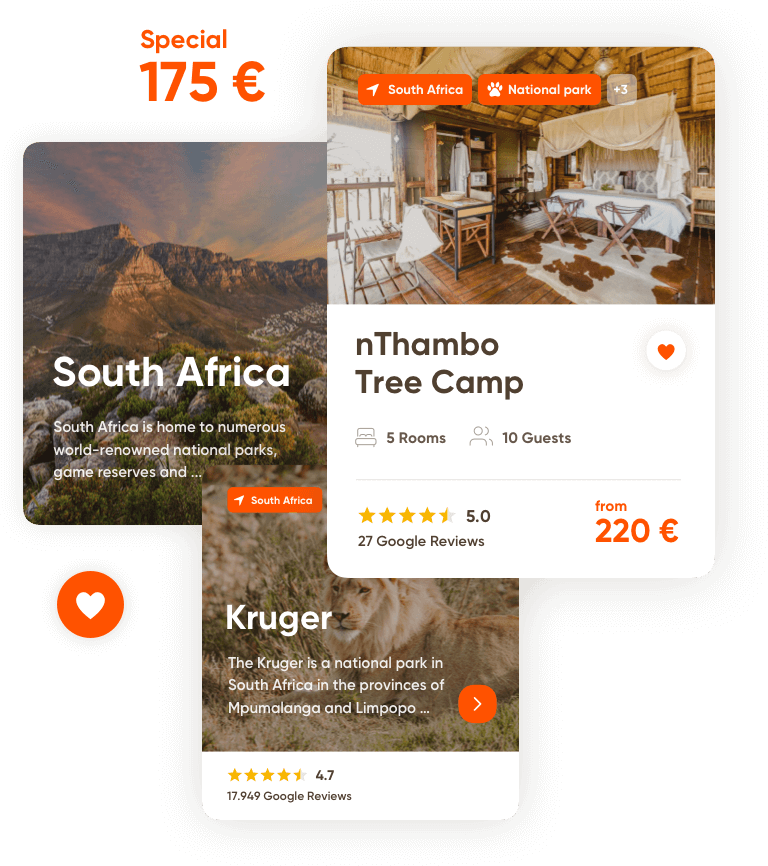Are you a budding adventurer looking for a truly unforgettable African experience? Whether it's spotting lions, rhinos and elephants in their natural habitat or taking breathtaking photos of vast grasslands, Africa's majestic wildlife is renowned around the world. Many safari tourists want to immerse themselves in the wonders of Africa, but overlook one important decision: whether to visit a national park or a private game reserve? In this blog post, we explain the differences between these two reserves and what they have to offer, so you can choose the best safari experience for you.
National Parks vs. Private Game Reserves
| Private Game Reserves | National Park | |
|---|---|---|
| Ownership | Privately owned | State-managed |
| Entry | Only guests of the reserve | Public |
| Accommodation within the reserve | ||
| Limited number of tourists | ||
| Large biodiversity | ||
| Exclusive guided tours | ||
| Self-drive safaris | ||
| Off-road Animal observation | ||
| Walking Safaris | ||
| Night rides |
Definitions
National parks are government-controlled protected areas that aim to preserve flora and fauna. They are famous for their untouched nature and species-rich wildlife, but their protection requires strict rules to ensure that animals and plants are not disturbed or affected.
Private reserves, on the other hand, are owned by companies or individuals who have bought the land and declared it a protected area. They are often smaller than national parks and often have less strict rules and regulations, which can mean that tourists can get closer to the animals.
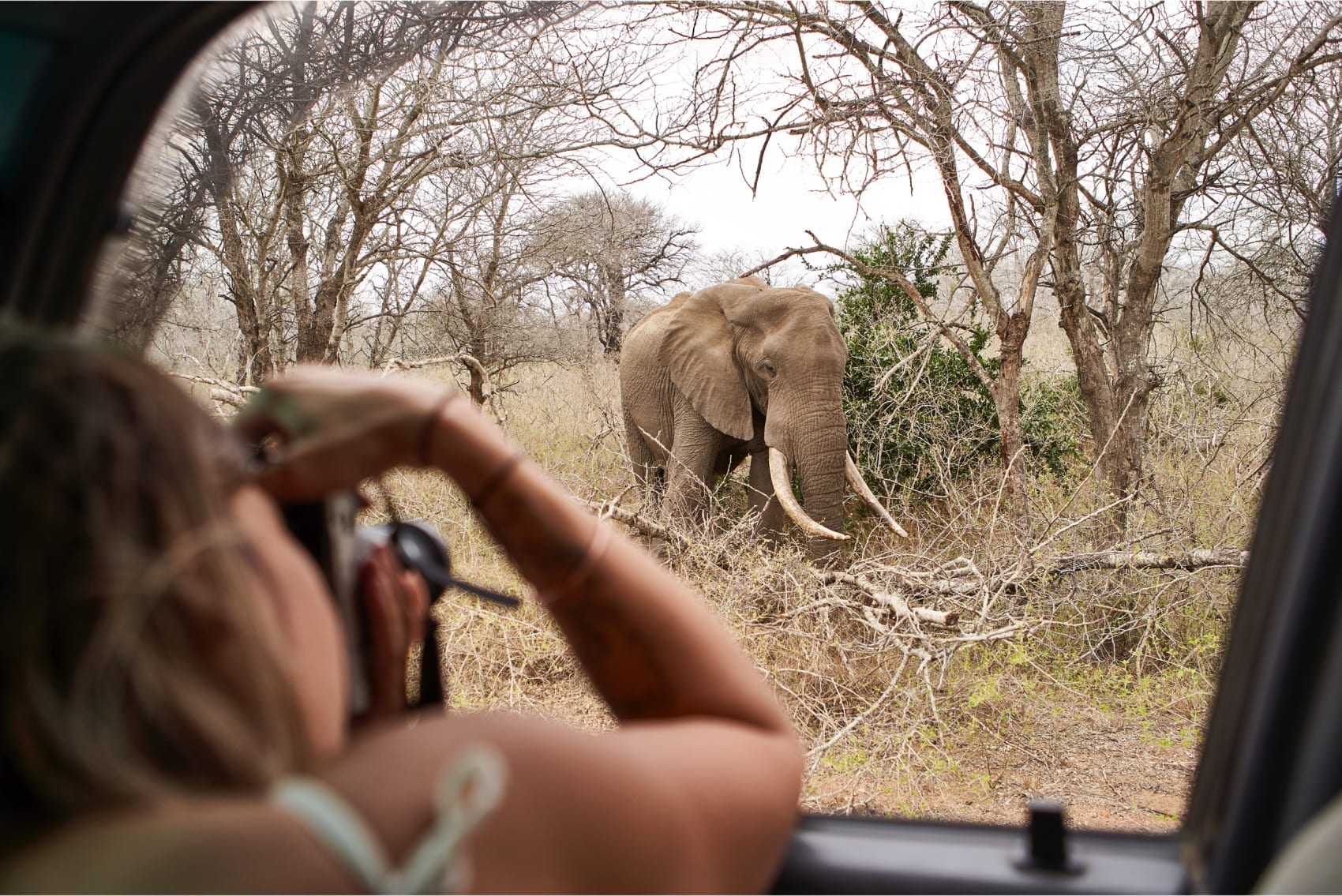
Erlebnis
Private wildlife reserves allow visitors greater flexibility, as they are much freer to shape what is and is not allowed. Therefore, private reserves tend to have more opportunities for visitors to discover the wildlife of Africa. For example, unlike a national park, travellers are allowed to observe animals off the road or on a private guided tour, which can lead to a more intense experience. In addition, private reserves often offer luxurious accommodation and a generally higher level of comfort.
In contrast, national parks restrict visitors to merely observing wildlife. This means that visitors must usually limit themselves to non-invasive activities; they are not allowed to participate in activities that may disturb or affect wildlife habitat.
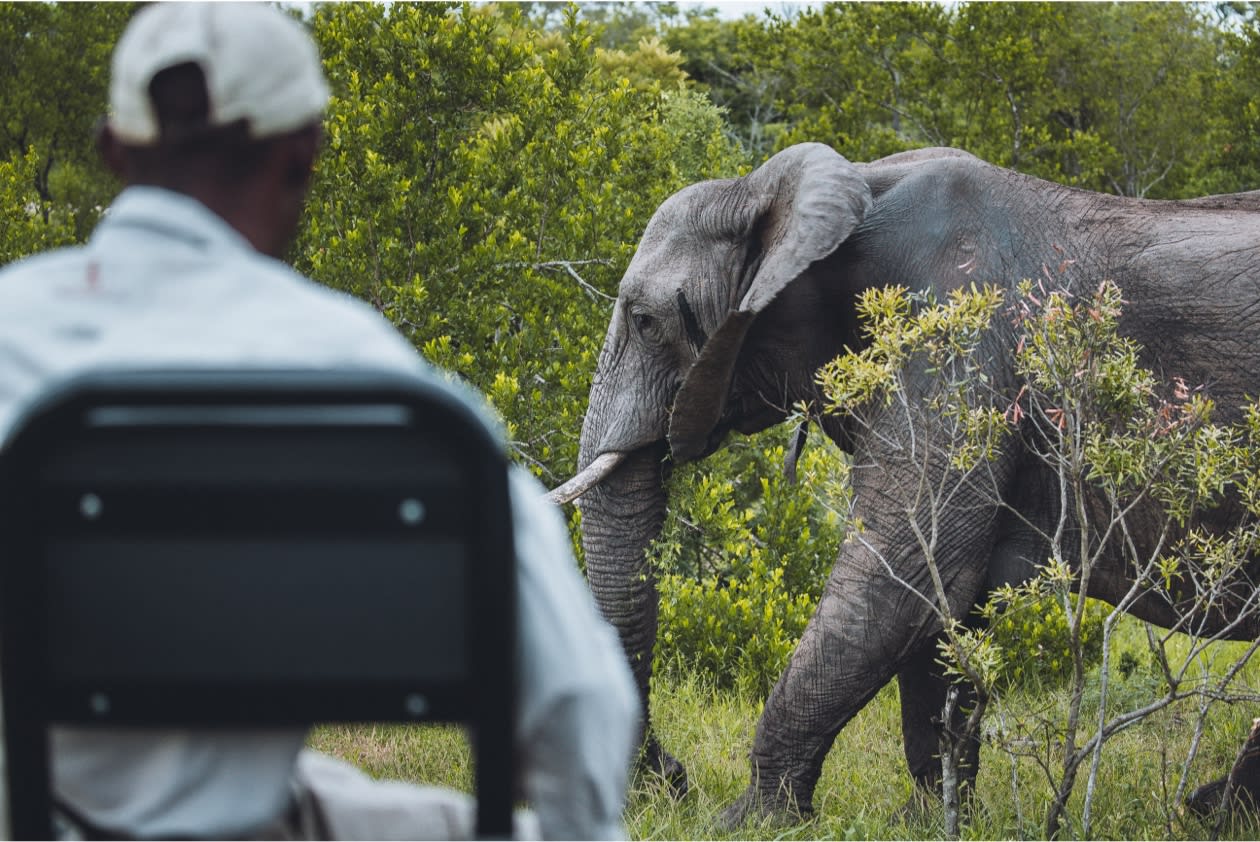
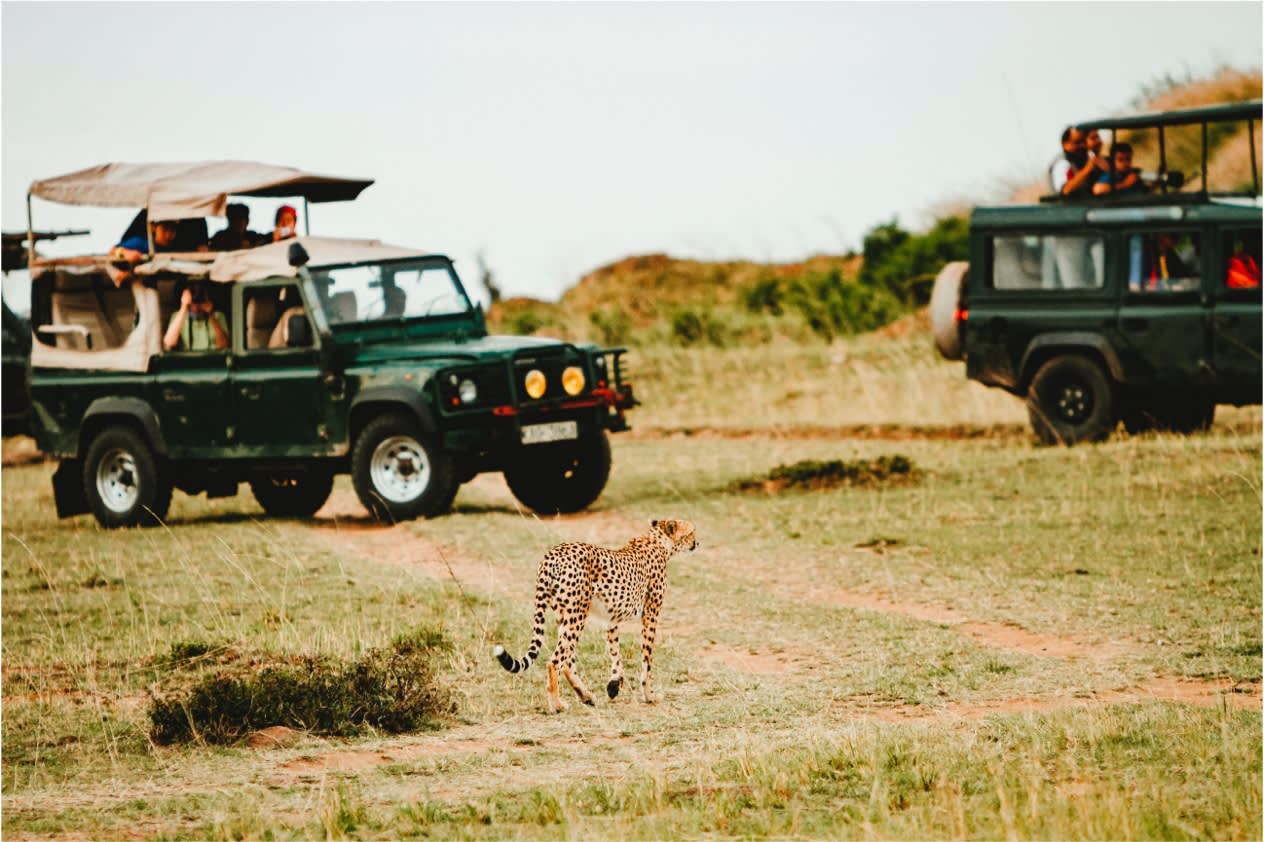
Nevertheless, there are many other ways for safari tourists to make unforgettable memories of their Africa trip in the national park: For example, one has the option to go on a so-called self-drive safari, navigating through the park in a vehicle at will and observing animals from the roads. In addition, group tours are offered where licensed rangers can provide information about the biodiversity. There are also special areas within the national park where you can observe more than just wildlife - such as river landscapes or mountains. So there is much more than just wildlife watching - although this is of course a big part of the experience.
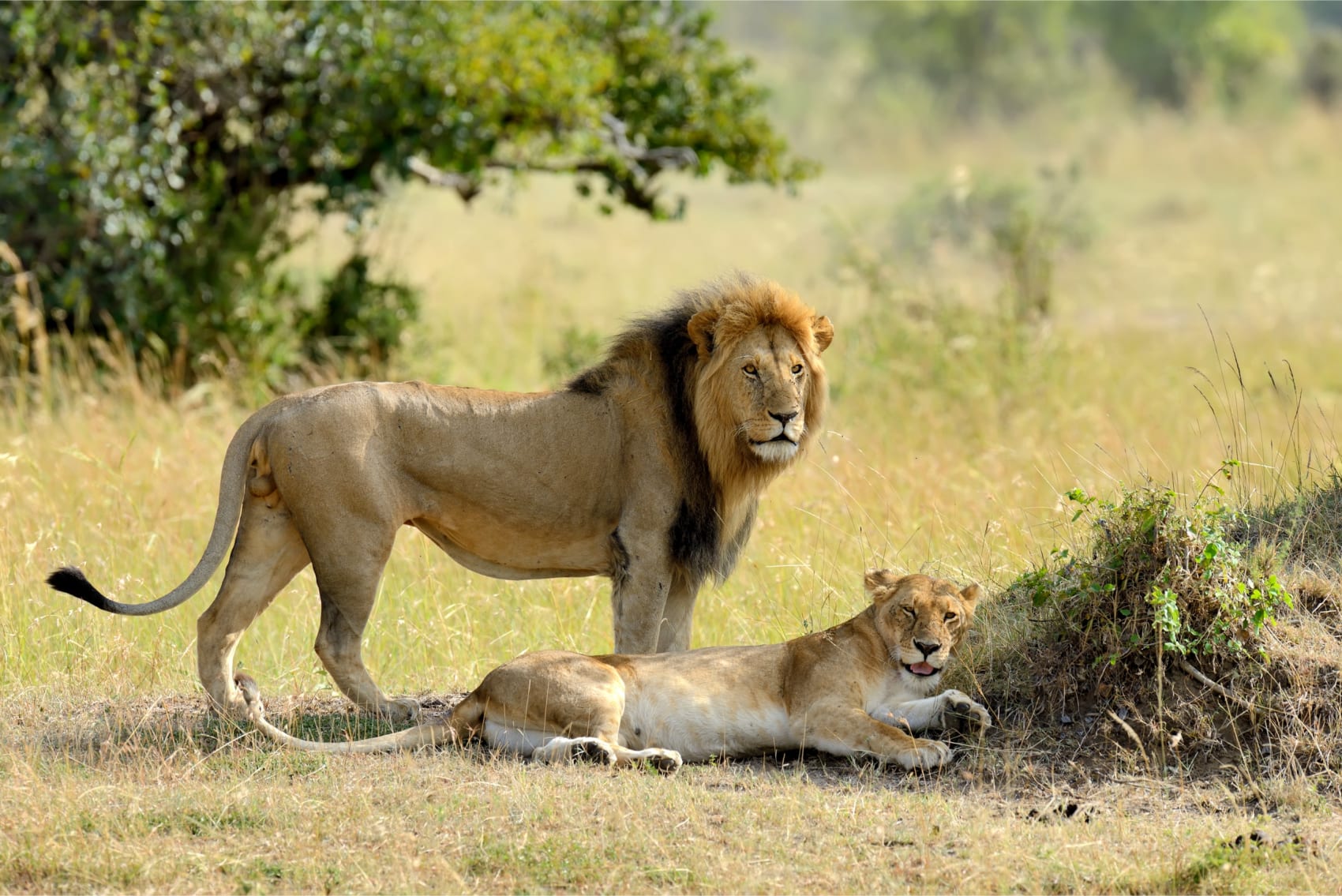
Wildlife
When visiting a national park, you can expect to see more diverse wildlife, as the vast, untouched lands provide the ideal habitat for numerous species. However, you are not usually alone in a national park and you may have to share the animals with other visitors.
Private reserves often offer a more exclusive experience, as you are travelling with a limited number of tourists. However, there are fewer guarantees that you will see all the animals you would like to see, as the limited space makes it difficult to accommodate a wide diversity of wildlife.
Conclusion
It is easy to see that national parks and private wildlife reserves offer different experiences. National parks are popular for their abundant wildlife, but also for the hiking opportunities in untouched nature. Private reserves can offer more exclusive safari experiences, such as luxurious accommodation and private guides, but there are fewer guarantees that you will see all the animals you would like to see. Before deciding, you should carefully consider which destination best suits your preferences - whether you prefer to see lots of animals in larger groups or are looking for a more exclusive experience with fewer tourists. Both options offer exciting glimpses of African wildlife and each experience is unique in its own way. Whichever type of safari you choose, you'll find accommodation to suit your preferences.
Don't know where to start? Here's an overview of the most popular national parks and private reserves in Africa.





